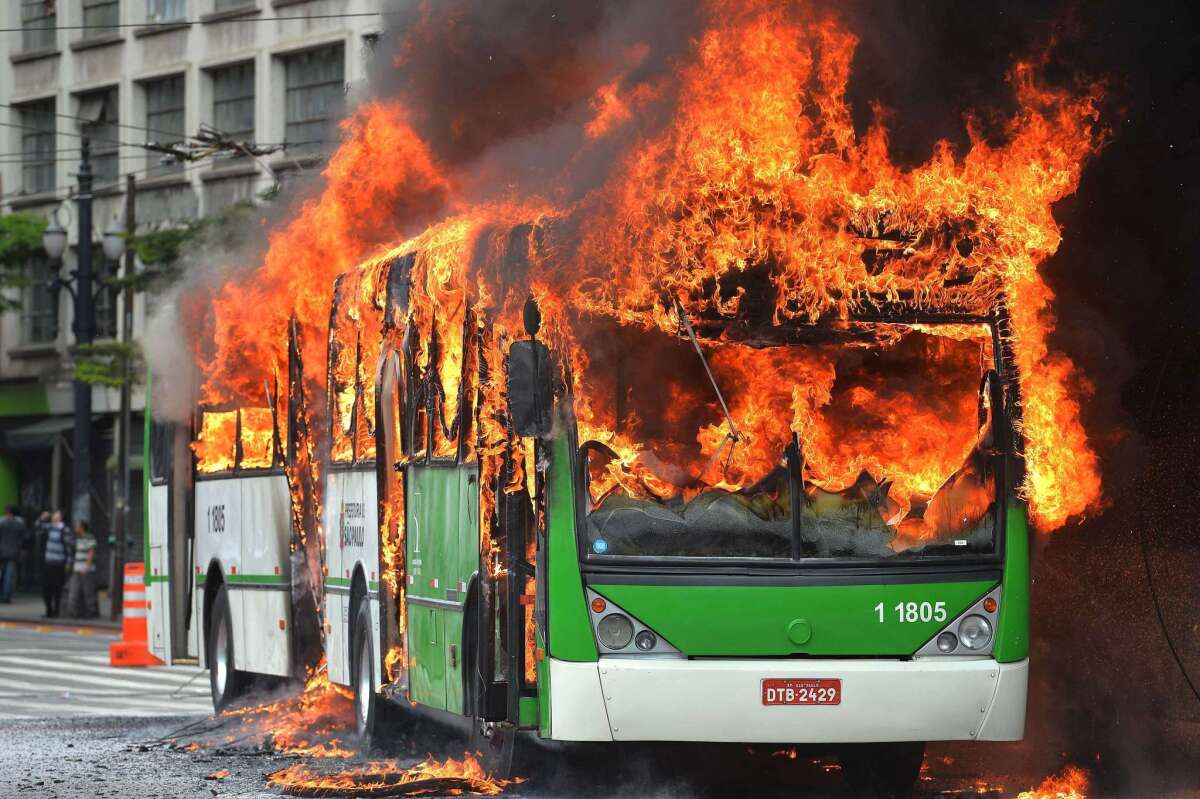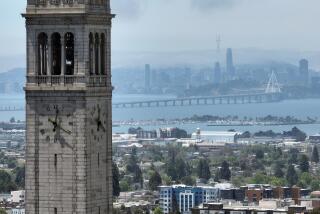Clashes erupt in Brazil as police evict squatters from high-rise

Clashes between police and squatters resisting eviction paralyzed Sao Paulo on Tuesday morning, as streets were emptied and the center of South America’s largest city was filled with tear gas and smoke from at least one torched city bus.
Large-scale demonstrations and street conflicts have taken place periodically across Brazil since June 2013, but had largely subsided since the beginning of the World Cup soccer tournament this June.
Chaos returned on Tuesday, however, after the forced eviction of members of the FLM, or Front to Fight for Housing, one of the many groups living in abandoned buildings in the city’s center. More than 70 people were arrested in the melee.
“All of a sudden this morning, this neighborhood was like something out of a terror film,” said Ylma Calixto, 38, who works across the street from the site of the eviction. “The people living in that building, they had nowhere else to go, and so when the police came, they fought back the way I guess they thought they should.”
Calixto and other witnesses said residents of the occupied high-rise building threw objects and paint onto the officers on the street below, who responded with sound and gas bombs. Calixto said two police rubber bullets hit and damaged her restaurant. Soon after, a city bus was set on fire and burned in the middle of a nearby street.
Officials have admitted there is a large housing shortage in the country and sometimes work with the social movements and homeless that take up residence in empty buildings.
But owners of buildings that have been occupied illegally can get a court order for occupiers to vacate. In the event of noncompliance, the order is enforced by military police, which are not trusted by many in the general population. Harsh crackdowns by the police have often led to escalations of conflicts or protests, as was the case with the protests that brought more than a million Brazilians onto the streets in June 2013.
For most of the morning Tuesday, powerful explosions could be heard throughout downtown, and movement throughout the area was nearly impossible.
“I was just trying to walk down the street to check out the [nearby] Pinacoteca Museum,” said Oliver Basciano, an art critic visiting Brazil from Britain. “And all of a sudden, I found myself in a war zone and couldn’t breathe.”
Bevins is a special correspondent
More to Read
Start your day right
Sign up for Essential California for news, features and recommendations from the L.A. Times and beyond in your inbox six days a week.
You may occasionally receive promotional content from the Los Angeles Times.





